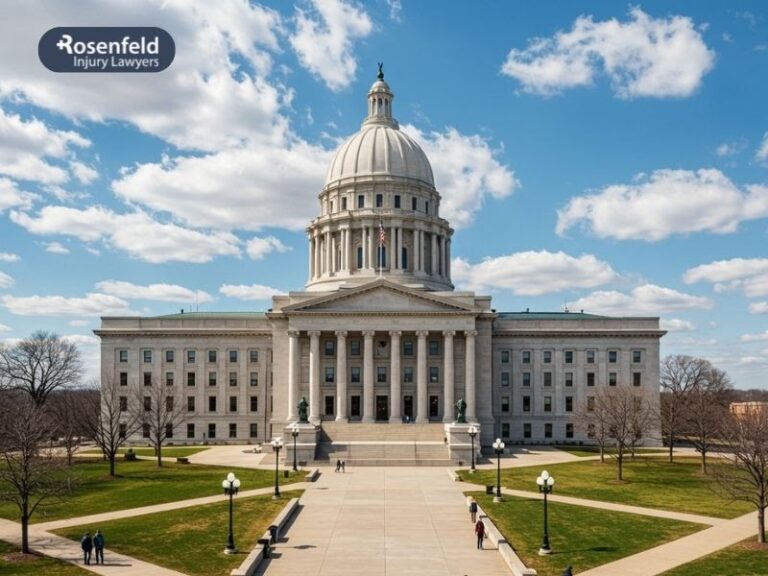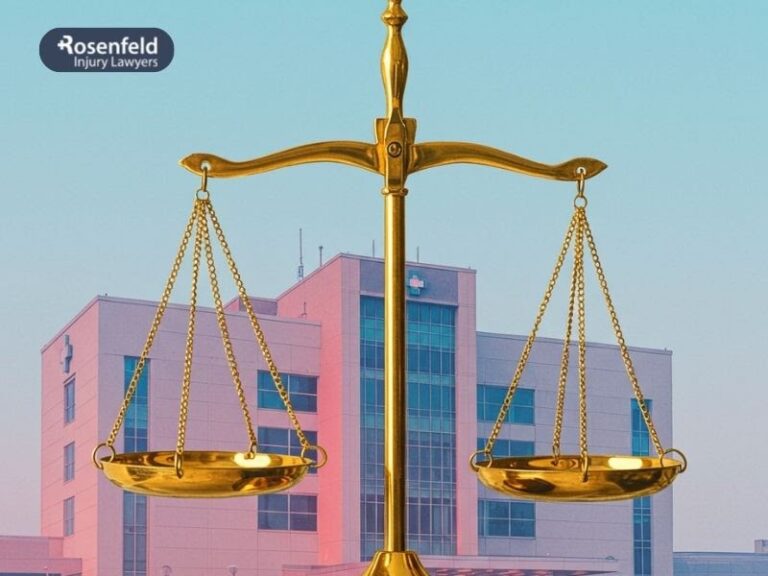Free Case Evaluation: 866-757-6452
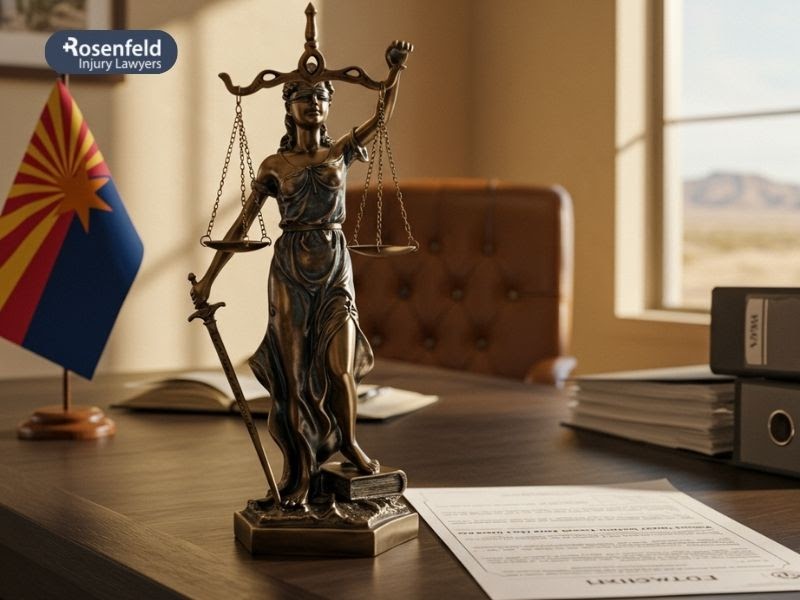
Experienced Law Firm Helping Arizona Victims of Sexual Abuse and Assault Seek Compensation
If you or someone you love has been sexually abused in Arizona, the Injury Lawyer Team is here to help you take legal action and pursue justice. Filing an Arizona sexual abuse lawsuit can be a powerful way to hold your abuser and any negligent institution that enabled the abuse accountable in civil court.
Whether the abuse occurred in a church, school, detention facility, medical setting, or another environment, you have the right to file a civil lawsuit and seek financial recovery for your trauma and suffering. Contact us now for a free consultation and learn more about your rights.
Recent Updates on Sex Abuse Lawsuits in Arizona
May 29, 2025 – Phoenix Elementary School District Faces Scrutiny Over Hidden Sexual Abuse Settlement
Since early 2024, Phoenix Elementary School District No. 1 has been embroiled in controversy. Tensions escalated when the school board voted to close two schools and end a lease with ASU Preparatory Academy.
Shortly after, board president Jessica Bueno resigned following revelations that she had bailed out a convicted sex offender involved in an underage sting operation.
Parents like Allison Gullick and Paul Booth became vocal critics of the district, launching their own investigations. Through public records, Gullick discovered the district had paid $200,000 to settle a 2023 lawsuit filed by a former student who had been sexually abused by her math teacher.
The teacher had already been criminally convicted, but what alarmed Gullick was the district’s complete lack of transparency—no mention of the case was made at school board meetings or even in executive sessions.
This secrecy compounded concerns about the district’s leadership, especially given its past. In 2019, Capitol Elementary School math teacher Manuel Gavina was arrested for sexually abusing students and was later convicted on 14 counts in 2023. He was sentenced to 25 years in prison.
That same year, a student named Betzaida Gonzales Pelayo and her mother sued the district for failing to protect her, alleging the school had ignored prior reports of Gavina’s misconduct as early as 2017. The lawsuit accused staff, including then-principal Dirk Olmstead, of attempting to cover up the abuse and threatening Pelayo’s graduation.
Gullick and other parents say the district’s repeated lack of communication shows a pattern of failing to protect students and withholding critical information from families.
February 8, 2025 – Claims Against a Behavioral Health Facility for Troubled Youth
A lawsuit filed in Arizona alleges that 13 girls were sexually assaulted and abused over the span of more than a decade at Mingus Mountain Academy, a behavioral health facility for troubled youth in Prescott Valley.
One of the plaintiffs, Melissa Catalano, now 23, claims she was repeatedly raped—approximately 80 times—by a male staff member during her year-long stay in 2017. She says other staff members also participated in or ignored the abuse, often removing her from camera view and physically restraining her during the assaults.
According to the complaint, staff assigned themselves as “shadows” to residents, requiring girls to follow them constantly—policies the lawsuit claims enabled frequent sexual contact, emotional manipulation, and threats of retaliation. Catalano alleges she was told to “shut up” or she wouldn’t be allowed to return home.
Attorney Ashley Crowell, representing the survivors, says the abuse spanned from 2011 to 2022, targeting some of Arizona’s most vulnerable individuals, many of whom were in the foster system. Crowell described a systemic failure of protection, alleging the facility operated in secrecy due to its remote location and lack of oversight.
The facility, operated by Vivant Behavioral Healthcare, has denied all wrongdoing. In a public statement, Mingus Mountain Youth Treatment Center said it takes allegations seriously but has seen “no evidence” to support the claims and intends to defend itself in court.
February 4, 2025 – Tucson Prison Lawsuit
A woman has filed a lawsuit against the State of Arizona, two private contractors (TKC Holdings and Trinity Services Group), and four employees after she was sexually assaulted by a prison inmate while working in the kitchen at the Rincon Unit of the Arizona State Prison Complex in Tucson on September 28, 2023.
According to the complaint, the attacker, Demarco Hines, a Level 4 inmate (high risk), was left unsupervised while assigned to kitchen duty. He allegedly followed the plaintiff into the restroom, punched her, choked her until she lost consciousness, and sexually assaulted her.
She reported that Hines threatened to kill her if she screamed and later pretended to help her when a correctional officer entered during the attack.
The woman, who was working as a civilian kitchen contractor, claims she was often required to work alone due to chronic staffing shortages and that civilian workers were not properly trained or protected from violent inmates. She also alleges that prison staff delegated authority to inmates, placing workers at greater risk.
At the time of the attack, he had a long history of violent offenses and disciplinary violations, including multiple incidents of indecent exposure and assault. Hines was indicted in March 2024 on charges including kidnapping, sexual assault, and aggravated assault of a correctional employee.
What Constitutes Sexual Abuse and Assault in Arizona?
Under Arizona law, sexual abuse and assault are separate crimes involving sexual gratification with key legal differences.
Sexual abuse (A.R.S. §13-1404) refers to any intentional, non-consensual sexual contact involving intimate parts, typically not including penetration. It’s often charged when the victim is 15 or older, but it can apply in cases involving minors under specific circumstances. This offense is generally a class 5 felony, but can carry harsher penalties depending on the facts.
Sexual assault (A.R.S. §13-1406) involves non-consensual sexual intercourse or penetration. It is treated as a class 2 felony and can result in long prison sentences, especially when the victim is a minor.
While these are criminal charges prosecuted by the state, survivors also have the option of filing a civil lawsuit. Civil claims can seek compensation for psychological distress, therapy costs, and other damages.
Unlike criminal cases, which require proof beyond a reasonable doubt, civil cases only require proof that the abuse “more likely than not” occurred — a standard known as the preponderance of the evidence.
Even if the abuser isn’t convicted in criminal court, they — or the institutions that enabled the abuse — may still be held responsible in a civil case. This path offers victims a way to seek justice and compensation, hold offenders and enablers accountable, and begin healing.
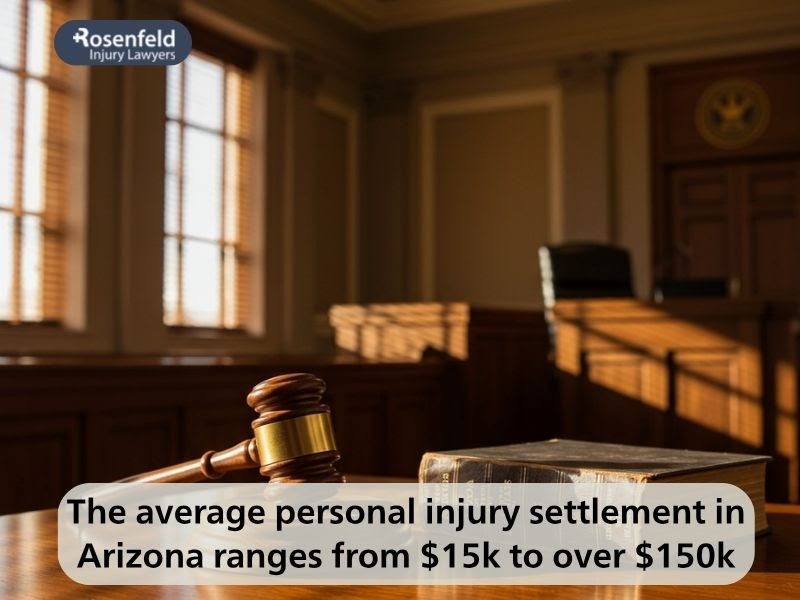
What Is the Statute of Limitations for Sexual Abuse Cases in Arizona?
In Arizona, the statute of limitations for civil sexual abuse claims depends heavily on the age of the victim at the time of the abuse and whether the case is being brought against a public or private entity.
Under A.R.S. § 12-514, individuals who were sexually abused as children now have until their 30th birthday to file a civil lawsuit against their abuser or a responsible third party (such as a school, church, or government entity).
For those who were 18 or older when the abuse occurred, Arizona applies its general personal injury limitations under A.R.S. § 12-542, which allows a two-year window from the date of the abuse.
If the abuse occurred in a public institution, such as a state-run group home, public school, or juvenile facility, additional rules apply. Under A.R.S. § 12-821.01, victims must file a formal Notice of Claim with the appropriate government entity within 180 days of either the injury or, for minors, turning 18.
If that notice is not filed on time, the survivor may lose the right to sue, even if the statute of limitations would otherwise allow it. Once the notice is filed and denied (or not responded to), the survivor then has just one year to file the actual lawsuit.
Because these timelines can be complex—and often depend on how the abuse occurred and where—it’s critical to speak with an experienced Arizona sexual abuse attorney to determine if your case is still viable.
Can I File a Civil Lawsuit in Arizona if No Criminal Charges Were Filed?
Yes — you can absolutely file lawsuits for sexual abuse in Arizona even if no criminal prosecution was ever brought against the abuser. Civil and criminal cases operate on separate legal tracks, and one is not dependent on the other.
In a criminal case, the government decides whether to press charges. Prosecutors may decline to file if there isn’t enough physical evidence, if the case is too old, or if the burden of proof — beyond a reasonable doubt — is too high to meet. But those same limitations don’t apply in civil court.
In a civil lawsuit, the survivor brings the case themselves with the help of an attorney. The goal is not to send the abuser to jail, but to hold them (and any responsible institutions) financially accountable for the harm caused.
The legal standard is lower — you only need to prove that the abuse more likely than not occurred, also known as the preponderance of the evidence standard.
Even if there’s no conviction, civil lawsuits can uncover internal documents, expose institutional failures, and allow survivors to seek compensation for therapy costs, lost income, and long-term trauma. In some cases, victims also sue third parties — like churches, schools, youth programs, or employers — for failing to protect them or for enabling abuse.
Filing a civil claim can be a powerful step toward justice, especially when the criminal system fails to act. Survivors deserve a voice in court, whether or not the state presses charges. If you’re unsure where your situation stands, our legal team can evaluate your case in a free, confidential consultation.
Example Arizona Sexual Abuse Settlements & Verdicts
Workplace Sexual Harassment in Arizona Correctional Facility
Roberta Jones, a correctional officer at Central Arizona Correctional Facility, filed a lawsuit through the EEOC alleging repeated sexual harassment by male co-workers and retaliation after she reported the abuse.
She described unwanted advances, sexual comments, stalking, and being reassigned to undesirable posts. The EEOC sued GEO Group, claiming it failed to protect Jones and violated Title VII of the Civil Rights Act.
GEO denied wrongdoing and said Jones was fired for misconduct, not retaliation. The case settled for $60,000. Under a consent decree, GEO agreed to reform its anti-harassment policies, provide training, and ensure retaliation does not influence employment decisions involving harassment complaints.
What Determines the Value of a Sexual Abuse Settlement or Verdict?
In sexual abuse lawsuits, compensation amounts can vary widely based on the specific circumstances of each case.
One of the most significant factors is the severity and duration of the abuse—long-term or repeated abuse often results in higher awards due to the compounded trauma.
The age and vulnerability of the survivor also play a critical role; cases involving children, minors, or individuals in institutional settings (such as schools, churches, or detention facilities) typically lead to higher damages because those institutions are held to a higher duty of care.
Emotional distress is another key component. Courts often assess the lasting psychological impact—such as PTSD, anxiety, depression, or disrupted life functioning—when determining damages.
Whether the abuse led to a criminal conviction may also influence the strength of the civil case, although civil lawsuits can proceed regardless of criminal charges.
Additionally, the financial resources of the defendant—especially in cases involving large organizations—can impact both the size of a potential settlement and a survivor’s ability to recover damages.
Documentation, credible testimony, witness support, and expert evaluations all contribute to building a strong claim that supports maximum compensation.
How Our Arizona Sexual Abuse Attorneys Can Help
A skilled Arizona sexual abuse attorney from our team can guide you through the legal process with care and clarity.
We help gather evidence, identify all responsible parties—including institutions that enabled or ignored the abuse—and ensure your lawsuit is filed on time. We also work with mental health professionals to document emotional trauma and other damages, strengthening your claim for compensation.
We handle these cases on a contingency basis, meaning you don’t pay unless we win.
Settlements Recovered by Our Arizona Sexual Abuse Lawyers
$21,000,000 – While traveling for a tech convention in Scottsdale, Jessica, 34, was assaulted by a hotel desk clerk who used a master key to enter her room. The man had a violent criminal history, including prior sexual offenses, which the hotel chain failed to uncover due to skipping a background check. The large settlement reflected both Jessica’s severe emotional trauma and the chain’s gross negligence in hiring and supervision.
$3,000,000 – Nadia, 41, was repeatedly assaulted by a doctor during what she believed were standard medical exams at a respected Phoenix hospital. Despite multiple prior complaints from other patients, the OB/GYN remained in practice for years. The settlement reflected the breach of trust, prolonged abuse, and emotional harm, as well as the institution’s liability for knowingly allowing the abuse to continue.
$2,500,000 – Thomas, now 46, was abused as a 12-year-old altar server at a Catholic parish in Tucson. The priest had already been moved from two other parishes following similar allegations but was quietly reassigned rather than removed. The Church denied responsibility but ultimately settled. The award took into account the long-term psychological impact, the church’s cover-up, and the institutional failure to report known abuse to authorities.
$1,160,000 – At age 15, Isaac was sexually abused by a guard at a state-run youth detention center in Yuma. The officer had a record of misconduct, including previous complaints about inappropriate behavior toward minors. The settlement covered extensive therapy costs, psychological distress, and the facility’s staff shortages and poor supervision.
$1,000,000 – Derrick, 11, was repeatedly abused by a volunteer at a city-sponsored after-school program in Mesa. The volunteer had not undergone a background check and was allowed to supervise small groups of children alone. The abuse came to light after a parent’s complaint triggered an internal review. The case settled before trial, with the amount reflecting Derrick’s age, emotional injuries, and the city’s failure to follow basic child protection procedures.
Book a Free Consultation With an Arizona Sexual Abuse Attorney Today!

No one should have to face the aftermath of sexual abuse alone. If you or a loved one has experienced abuse or assault in Arizona, our legal team is here to help. We provide discreet, compassionate guidance and will walk you through your legal rights under Arizona law.
Whether you’re thinking about filing a civil claim or just want answers, we’re ready to listen. Call (866) 757-6452 or connect with us through our confidential contact form to get started.
We handle sexual abuse cases throughout Arizona, including:
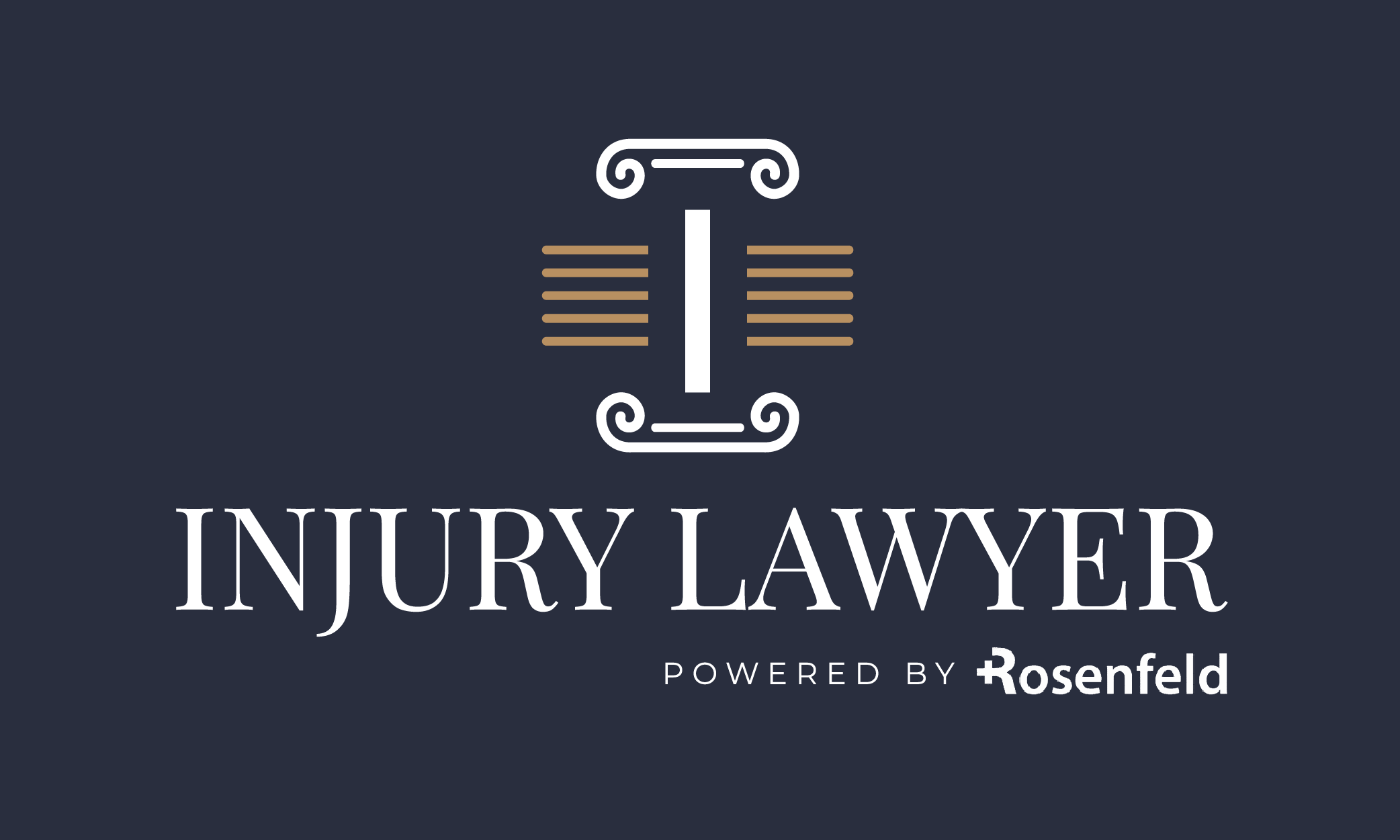




![Illinois Catholic Diocese Priest Sexual Abuse List [387 Perps] illinois-catholic-diocese-priest-sexual-abuse-list](https://injurylawyerteam.com/wp-content/uploads/2025/05/illinois-catholic-diocese-priest-sexual-abuse-list-150x150.png)


